HOT AUGUSTIN NIGHT
In the past five years, I have encountered only a handful of fresh-to-the-scene classical soloists who completely enraptured’”those who combine the old-school magnetic quality of superlative technique with energetic experimentation, soul, and discovery. Among the electrifying performers that have made me literally lean forward in my seat are cellist Alisa Weilerstein and pianists Daniil Trifonov and Behzod Abduraimov.
But when Juilliard-trained violinist Augustin Hadelich performed Beethoven’s Violin Concerto last year with the LA Philharmonic, it was a revelation. Grounded yet ethereal, intense yet warm-hearted, jocular yet serious, the now 30-year-old played his 1723 Ex-Kiesewetter Stradivarius, taking a work I thought I knew and transformed it from a violinist’s showcase into an intimate and achingly beautiful experience.
Since then, the Italian-born German has become one of the most in-demand players on the world stage, and his only Southern California performance in the near-future is coming up on January 8-10, 2015, at Segerstrom Concert Hall, where he will perform Tchaikovsky’s beloved Violin Concerto with the Pacific Symphony. Led by guest conductor Leo Hussain, the program also includes Jean Sibelius’ jubilant and appealing Symphony No. 2 in D Major, and Toru Takemitsu’s Requiem.
Certainly, Hadelich has a superior technique’”crystal clear top notes and precise, incredibly long trills’”but his soulful interpretation rendered the Beethoven so quiet, emotional, and sensitive that it actually roused the spirit. Indeed, the audience burst into sustained applause after the first movement (Allegro) and somehow couldn’t stop. Without ego, Hadelich continually bowed his head in appreciation over and over and over. At one point, I wondered if the patrons believed the Concerto was complete, but they had simply fallen in love and could not control themselves. He was never ostentatious yet he was continuously hypnotic. The more tender his playing, the more rapt we became.
Is it possible that Hadelich’s insight was born of adversity? At 15, he was badly burned and nearly died when a fire consumed his family home. Grafts were needed on his face, his abdomen, and his bow arm’”yet somehow four critical fingers on his left hand were uninjured. The work it must have taken to recover and become a world-class violinist is incomprehensible.
Equally inconceivable is that Tchaikovsky’s Violin Concerto’”ebullient and heartfelt with unforgettable melody, drama, tenderness, and flashy brilliance’”was not well-received at first. Even the work’s dedicatee, Leopold Auer, would not premiere it, citing awkward solos that are too difficult to be worth the trouble. Tchaikovsky had to wait almost four years after its completion in 1878 to premiere it, but that 1881 performance with the Vienna Philharmonic received scathing reviews. Vienna’s most influential critic, Eduard Hanslick, wrote, “Tchaikovsky’s Violin Concerto brings to us for the first time the horrid idea that there may be music that stinks in the ear.”
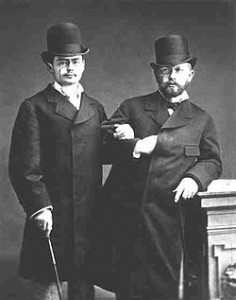 Yet it wasn’t long before the Violin Concerto in D major, Op. 35 became one of the most cherished violin works in the repertoire. “It’s easy to see why,” wrote Hadelich, who’s been performing the piece since he was 12 years old. “It’s filled with beautiful, romantic melodies, it’s exciting and virtuosic, and its emotions are deeply felt and intense.”
Yet it wasn’t long before the Violin Concerto in D major, Op. 35 became one of the most cherished violin works in the repertoire. “It’s easy to see why,” wrote Hadelich, who’s been performing the piece since he was 12 years old. “It’s filled with beautiful, romantic melodies, it’s exciting and virtuosic, and its emotions are deeply felt and intense.”
Since Tchaikovsky was not a violinist, he sought the advice of Josif Kotek on the completion of the solo part, considered one of the most technically difficult works for the violin. “It’s often been speculated that Tchaikovsky had a romantic affair with Kotek,” continues Hadelich. “The music seems to reflect that’”it sounds like it was written by a man who is happily and passionately in love. I think his concerto is a happy work, and although there are some bittersweet, aching moments (for example in the slow movement, Canzonetta), it never takes a dark or tragic turn.” Tchaikovsky wanted to dedicate the concerto to Kotek, but felt constrained by the gossip this would undoubtedly cause about the true nature of his relationship with the younger man.
Here is a clip of Hadelich playing the Finale of Dvořák’s Violin Concerto:
Leading the program is Leo Hussain, a regular conductor at many of the world’s most prestigious opera houses. Hussain has garnered a reputation for having an unmatched sense of musicality which enables him to bring a fresh perspective to old masterpieces. According to Hadelich, the Tchaikovsky is “incredibly exhilarating to play!” Can you imagine what it will be like to see this live?
Tchaikovsky’s Violin Concerto
Pacific Symphony
Reneé and Henry Segerstrom Concert Hall in Costa Mesa
Thursday through Saturday, Jan. 8-10, 2015, at 8:00
preview talk with Alan Chapman beginning at 7:00
for tickets, call 714.755.5799 or visit www.PacificSymphony.org
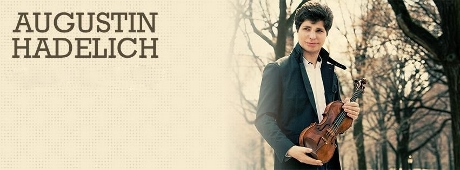
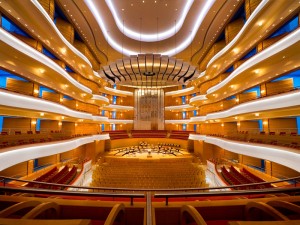
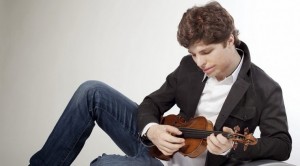
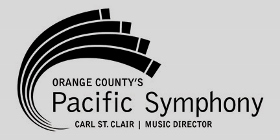

{ 2 comments… read them below or add one }
Just came from the concert: Hadelich had me at “hello.” Within the first few minutes of the Tchaikovsky, he made me a believer–that his star will continue to rise and will reach the heights of the world’s great violinists. Again, he received a standing ovation after the first movement: Yes, the OC audience is easy and we should not have interrupted, but please hold us blameless. Augustin Hadelich is the one to blame. His music transformed the listeners into an unruly mob of music lovers.
The same thing happened at the concert yesterday in Minneapolis. My experience was just as you described.